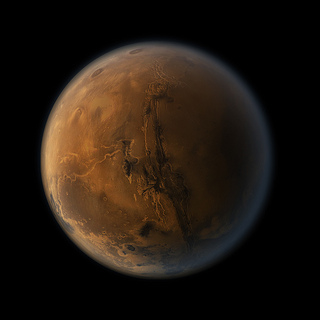New Study: Life On Earth Came From Mars

Former University of Florida professor Steven Benner has a new theory stating that the molecules that would later become the recipe for life were created on Mars billions of years ago before being transported to Earth on meteorites. The theory was presented at the Goldschmidt Conference, a geochemistry meeting held in Florence, Italy.
For decades, scientists have been trying to discover the process that first created RNA and DNA, the most basic components of all living organisms. It has been widely accepted that these components were created in a "primordial soup" that contained the basic molecules needed to make RNA, such as carbon and hydrogen.
But the process to create that RNA also requires more complex molecules to create the chemical structure. Simply adding heat and light to the basic molecules would only create a tar-like substance. Benner argues that the two minerals that would be most effective in forming RNA, boron and molybdenum, were first created on Mars.
SEE ALSO | Climate Change Predicted To Contribute To Future Violence
""It’s only when molybdenum becomes highly oxidised that it is able to influence how early life formed," Benner wrote in his research. "This form of molybdenum couldn’t have been available on Earth at the time life first began, because three billion years ago, the surface of the Earth had very little oxygen, but Mars did."
Benner also argues that three billion years ago, when life on Earth is estimated to have first began, Earth was covered by water while Mars had large dry areas. Boron has been found only in very dry places, and it would have been impossible for it to have been created on Earth in large enough amounts to form nucleic acids.
"It’s lucky that we ended up here nevertheless, as certainly Earth has been the better of the two planets for sustaining life," Benner said. "If our hypothetical Martian ancestors had remained on Mars, there might not have been a story to tell."



